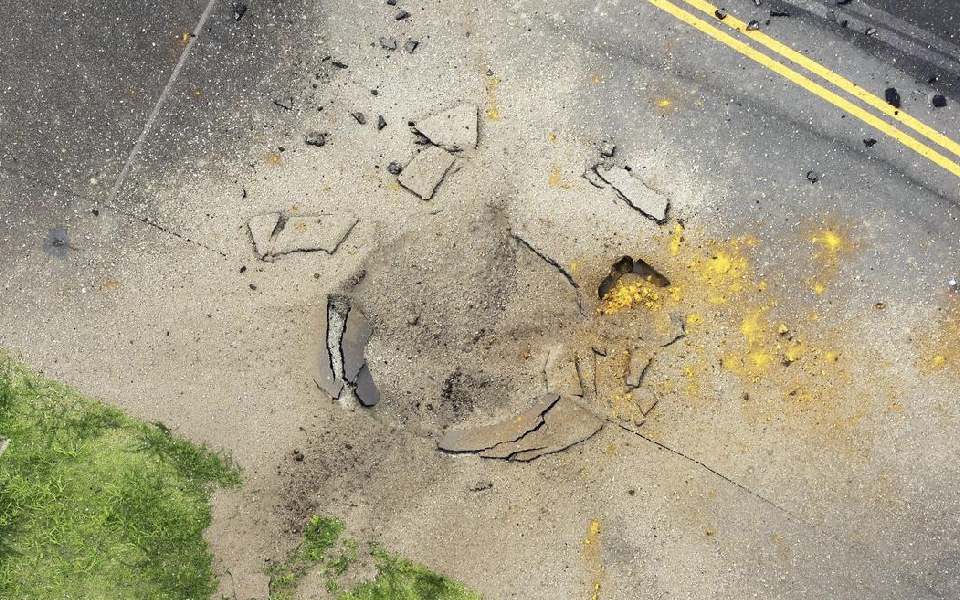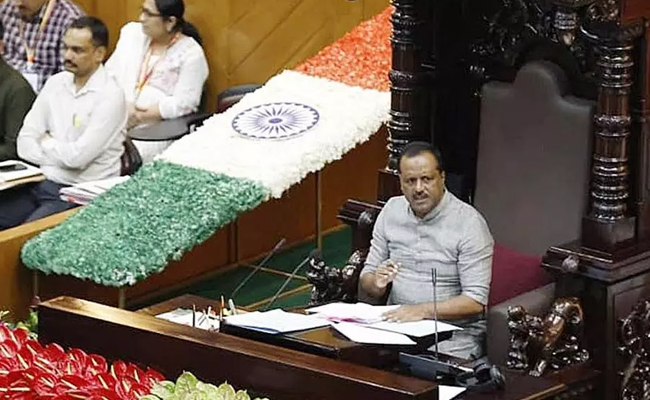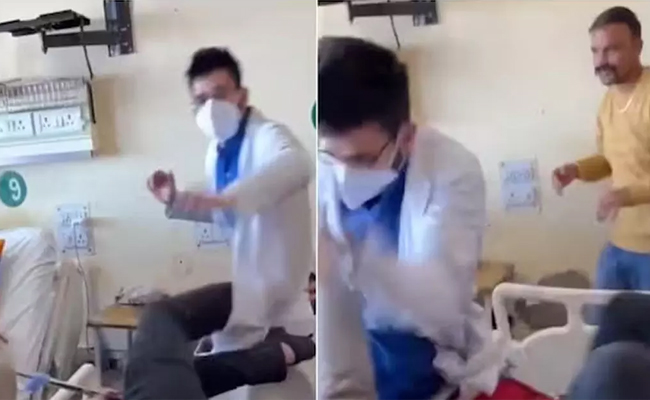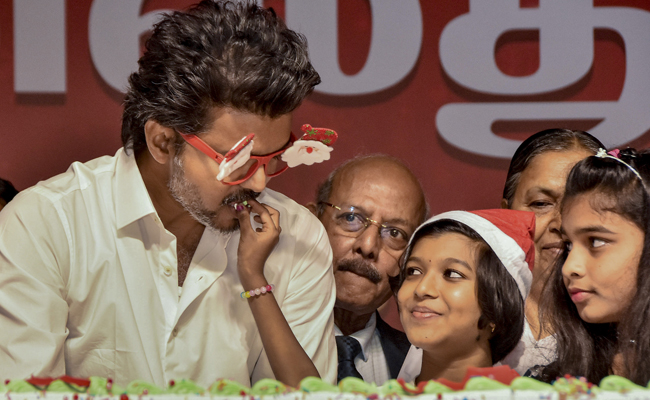An unexploded United States (US) bomb from World War II that had been buried at a Japanese airport exploded on Wednesday, October 2, causing a large crater in a taxiway and the cancellation of more than 80 flights but no injuries, Japanese officials said.
Land and Transport Ministry officials stated there were no aircraft nearby when the bomb exploded at Miyazaki Airport in southwestern Japan.
Officials said an investigation by the Self-Defence Forces and police confirmed that the explosion was caused by a 500-pound US bomb and there was no further danger. They were determining what caused its sudden detonation, news agency AP reported.
A video recorded by a nearby aviation school showed the blast spewing pieces of asphalt into the air like a fountain. Videos broadcast on Japanese television showed a crater in the taxiway reportedly about 7 meters in diameter and three-feet deep.
Chief Cabinet Secretary Yoshimasa Hayashi said more than 80 flights had been cancelled at the airport, and hopes that services will be resumed on Thursday morning.
The Miyazaki Airport was built in 1943 as a former Imperial Japanese Navy flight training field from which some kamikaze pilots took off on suicide attack missions.
A number of unexploded bombs dropped by the US military during World War II have been unearthed in the area, Defence Ministry officials said.
Hundreds of tonnes of unexploded bombs from the war remain buried around Japan and are sometimes dug up at construction sites.
🇺🇸🇯🇵 “Bomb dropped by U.S. in World War II explodes at airport in Japan, causing runway damage and cancellation of 80 flights” — CBS https://t.co/ChhuX9K469
— Lord Bebo (@MyLordBebo) October 2, 2024
Let the Truth be known. If you read VB and like VB, please be a VB Supporter and Help us deliver the Truth to one and all.
Bengaluru (PTI): Bengaluru City Police (BCP) on Monday said that it has, in collaboration with cab aggregator platforms Uber and Ola, implemented a technology-driven integration aimed at enhancing the safety of riders and drivers.
It would also strengthen emergency response mechanisms across the city.
As part of this initiative, emergency call facilities have been incorporated within the Uber and Ola mobile applications used for booking rides, it said.
ALSO READ: Doctor assaults patient at Shimla hospital; probe ordered as video sparks protest
Through this integration, riders and drivers seeking emergency assistance can directly share real-time location data, trip details, and contact information with Bangalore City Police's 112 emergency response infrastructure from within the Uber/Ola app itself, an official release said.
Noting that this seamless flow of critical information enables quicker police access during emergencies, facilitating faster response times and potentially life-saving interventions by first responders, it said the initiative is a significant step towards leveraging technology partnerships to ensure safer urban mobility and improved public safety.





